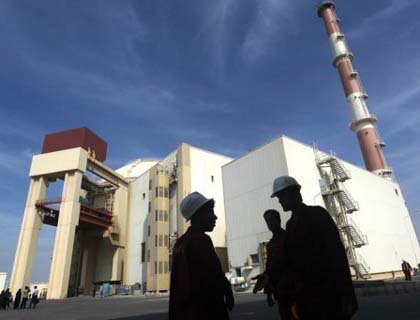US vice President Joe Biden once again shed light on the position of his country regarding Tehran’s nuclear program. He made it clear that a nuclear-armed Iran was not acceptable at all cost, saying that Washington loved to try diplomatic solution but military option would not go off the table.
Simultaneously, John Kerry in meeting with Saudi Arabia, the main regional rival of Iran, said that his country preferred diplomatic ways meanwhile noticed the resolve of countries to develop nuclear arms.
Such statement comes after resumption of new round of talks with Tehran to show its commitment to NPT conventions. The last meeting was held in Kazkistan where Iranian diplomats expressed optimism of changes in the previous standing of 5+1.
Their statement shows that Western countries do not have such optimism about consequence of negotiation. They are really disappointed of diplomatic means to get Islamic Republic to suspend its nuclear Program in exchange to political and economic incentives in a quantity that they were ready to pay. Indeed for a long period, they used to seriously try to persuade Tehran to avoid building nuclear plants for any purposes because, due to lasting mistrust, they view an unarmed regime with nuclear weapons dangerous even. In other words, if Iran remains committed to NPT and practiced the conditions in the treaty one by one, seemingly, that also is not acceptable for many Western as well as neighboring countries. Why? The reason is clear. In such scenario, the country would become potentially dangerous. It can produce nuclear weapons in no time. It is hard for Iran to become country like Japan. Presently, Japan has the potential to build nuclear weapons in no time, yet no country in the globe has any problem with its uranium enrichment program and nuclear plants. It is largely due to deep national aversion of nuclear weapons after the incidents of Nagasaki and Hiroshima. The case differs with theological regime like Iran.
It does not have the fame of a responsible country. Officials frequently have opposed sensitive issues like rejection of the Holocaust, the propaganda theory of holding 9/11 attacks by circles within the US administration, commitment to wipe out Israel from the earth map. So, a country with a commitment to wipe out another is hardly possible to be trusted for not using the nuclear technology for military purposes.
On the other hand, Tehran has signed NPT and according to international law it has the right to continue its uranium enrichment program for civilian purposes. Perhaps, No body ignores that Tehran has the right to continue it uranium enrichment program and acquire nuclear technology. This is what the international community maintains too. And according to the very treaty, member countries have the right to establish nuclear plant for civil purpose, the thing which Tehran constantly claims. And presently the international community does not have the right to order the country to suspend its nuclear program if the country cooperates closely with IAEA’s observers, the thing which is the most controversial issue. Though the International Atomic Energy Agency’s observers frequently visit nuclear sites, they cannot tell with the confidence that the program is for peaceful purposes. If Teheran cooperates closely and clears the dominant doubts, it has the right to continue the program without worry of possible military attacks.
Thus, because of doubts and mistrust, the international community wants Tehran to suspend its program in exchange of receiving economic incentive packages.
As I said it has been a long time that they have become disappointed of consecutive diplomatic failures. They decided to mount pressure in hope to force the country change its stance, though officials still emphasis that doors towards negotiation is always open. But the reality shows that they are really disappointed of the regime and only force and pressure can undermine its ambition for achieving nuclear technology.
Therefore, they have decided to ratchet up pressure. The European Union recently approved to intensify sanctions against the country. It should be noticed that the European and US sanctions are different and much harsher than those of the United Nations. The United Nations too has yet approved four rounds of sanctions. Anyhow, in the meeting held on the issue in Brussels days ago, all members agreed to ban new oil contract with Islamic Republic, and end the existing contracts till next coming six months. The time period was considered largely due to countries like Greece and Italy, the two biggest Iran’s oil importers in the EU, and nudges them to approve the sanctions.
It has been a long time that the US and EU tighten the belt of sanctions around economic activities of Tehran. Neighbors are also worried about its nuclear program. The Wikileaks release clearly showed how the neighbors are worried as some Arab leaders asked the United States to wage war against Tehran’s nuclear Program. In such situation, they are ready to instigate the international community to take tougher stance and they play out their own role. Because one of the major problems ahead of countries to form a united front against Islamic Republic was/ is its energy which, if cut out of the global market, has the potential to confront many countries with deep economic challenges. The second thing refers to European Union’s serious concerns about Iran’s nuclear program. So, it means that European countries are worried to the extent that they became ready to pay high price to mount pressure on Iran to suspend its nuclear program.

